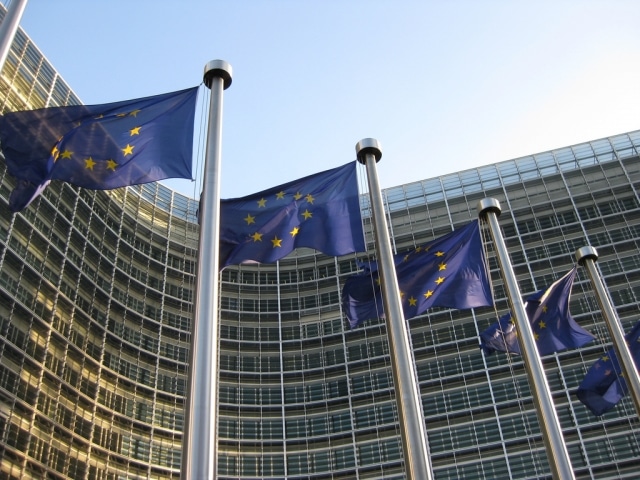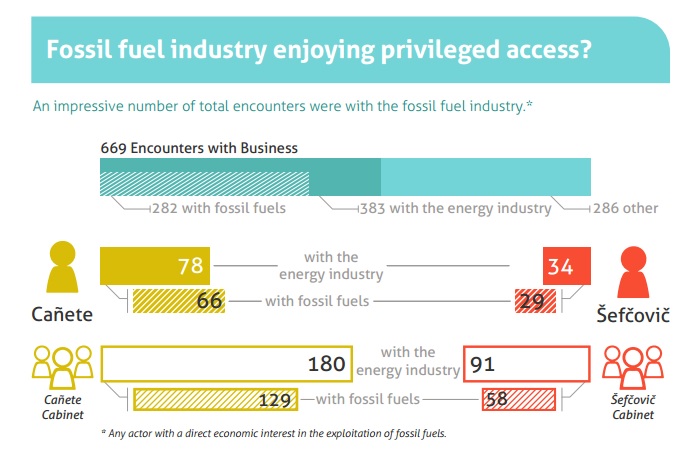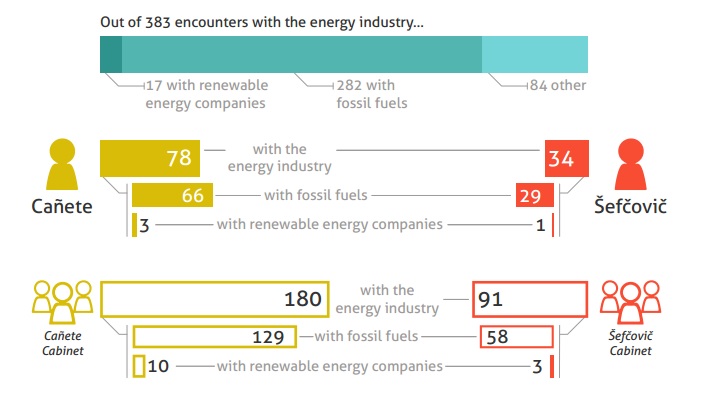Big energy and fossil fuel companies are enjoying privileged access to the EU’s top climate policy decision makers in the run-up to December’s Paris climate conference a new report reveals.
The report by transparency research and campaign group Corporate Europe Observatory (CEO) looks at all meetings held by Commissioners Miguel Arias Cañete and Maros Šefčovič during their first year in office. In total, energy companies make up 30 per cent of all lobby encounters with the commissioners and their cabinets.
When it comes to discussing climate and energy policy, three-quarters of the European Commission’s encounters with the energy industry were with fossil fuel companies including BP, Statoil, and Shell.
Renewables vs Fossil Fuels
At the same time, specialist renewable energy companies have not enjoyed a single one-to-one meeting with the Commissioners. Meanwhile, only six renewable energy associations had meeting.
In fact, for every meeting with the renewables sector, Cañete – a former director of two oil companies now responsible for energy and climate action – had 22 meetings with the fossil fuel industry. Šefčovič, who is in charge of the Energy Union, had just one meeting with renewables compared to 29 with the fossil fuel industry.
Graphs via CEO report
CEO researcher and campaigner Belén Balanyá said: “This data is extremely worrying given the sensitive topics these Commissioners have been in charge of over the past year. Industry-friendly policies on car emissions, Energy Union, the Emissions Trading Scheme, and the upcoming COP21 UN climate negotiations clearly reflect the disturbing level of access to decision-makers enjoyed by dirty energy.
“While the science says we must urgently and drastically cut greenhouse gas emissions, boost renewables, and dramatically increase energy efficiency, the Commission is sadly moving in the opposite direction.”
BP and E.ON
Oil giant BP and electricity company E.ON are deemed two of the most powerful lobbyists in Brussels according to the report. In 2014, BP spent between €2,750,000 and €2,999,999 (£1,959,362 and £2,137,485) lobbying the European Commission. Meanwhile, E.ON spent between €2,000,000 and €2,249,999 (£1,424,990 and £1,603,114). Both are also members of numerous trade associations that lobby against climate action.
With 15 encounters each, BP and E.ON had the most contact with the Commission out of all the fossil fuel companies. This was followed closely by 14 meetings with Statoil and 12 with each of Shell, Engie and Iberdrola each. Other companies that met with the Commission include RWE, EDF and Eni.
“This privileged access is reflected in the Commission’s policies, from the direction of the Energy Union as it locks in fossil fuel infrastructure, to the watering down of the EU’s climate ambitions,” argues the report.
Civil Society
The report also reveals how neither Cañete nor Šefčovič are anywhere near meeting Commission President Juncker’s promise for “balance and representativeness” in the stakeholders that Commissioners meet.
Indeed, on top of securing far fewer encounters with top officials, civil society groups such as NGOs and trade unions were met far more often in larger groups than business groups, who enjoyed more one-to-one contact with the Commission’s highest level officials.
“In fact, they should be reconsidering whether it is appropriate at all to meet with the most polluting companies to discuss climate and energy policies. Those causing the problem should not be deciding how we fix it”, added Balanyá.
Photo: TPCOM via Flickr
Subscribe to our newsletter
Stay up to date with DeSmog news and alerts








